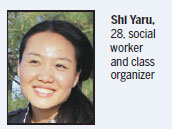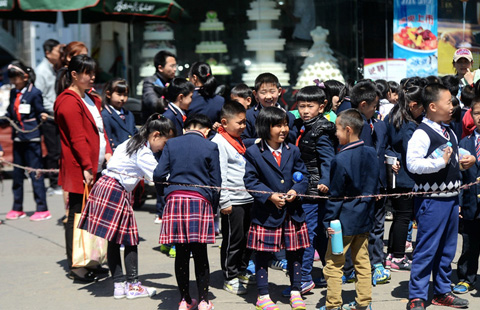Being measured and patient always pays off
By Shi Yaru (China Daily) Updated: 2016-04-12 07:39The community in which I have been working provides several training services for elderly people, including computer and English classes. But an increasing number of people asked about smartphone skills, so we started the class five months ago.
At first we had around 10 people every time, but now we have more than 200 people. We are considering dividing them into two classes: basic and advanced.
As more people flooded in, some from other communities, we invited college students to volunteer, to answer the seniors' questions and help them operate their devices.
Our students are looking for a social life with people of their own age, but also with younger people.
I teach most of the classes, and use PowerPoint slides I make myself.
In every class, we try to focus on one operation, such as making a video call, because most of our students are age 60 and older. It takes time for them to digest those skills.
Being measured and patient is the best way to teach elderly people about digital skills.
I come from Henan province in central China. I taught my 57-year-old father to download a news application. He loves it, but very few of his friends in Henan know how to read the news on their smartphones. People in smaller cities still lack digital training.
Even in Beijing, we are looking for a bigger room and more-stable internet for our class. I hope the government will be able to provide more support for this.
Shi Yaru spoke with Peng Yining.

- Premier underlines peaceful settlement of boundary issues with India
- Hospitals add beds for maternity boom
- Chinese Academy of Sciences tops global science institutions
- China plans to launch core module of space station
- Xi urges stronger PLA
- Charities rebuild image through relief efforts
- Self-testing to boost HIV battle
- Study finds plummeting levels of physical activity among Chinese adults
- School not at fault, its principal insists
- Xi says advice from netizens welcome








